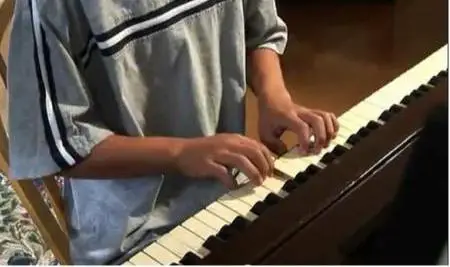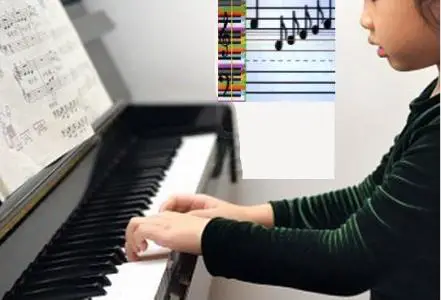
Piano lessons for kids: Easy and fun methods keeping in mind the development and growth of your child.
Piano Lessons for Kids – Your Role
 Learning to play a piano (or any other instrument) is a worthwhile investment due to the several benefits.
Learning to play a piano (or any other instrument) is a worthwhile investment due to the several benefits.
Here’s how to ensure your kids really benefit from their music lessons.
Make them practice regularly
If your child has started taking piano lessons, its really important for the child to practice the piano. Not only does it instill discipline in your child, practicing the piano is the only way to actually learn to play the piano.
Make your child practice regularly and preferably at the same time.
Set up a schedule for at least 5 days a week. Make practice part of the everyday routine.
For beginners, kids only need to practice 15 minutes a day. This 15 minutes goes a long way in helping them learn faster and more effectively.
Get involved
Sit next to the child when they are practicing. The more your child knows that you’re paying attention to their piano playing, the more your child would want to play and show you what they can do.
Get involved in their progress, find out what they like and what they do not like so that you discuss those with the teacher.
We learn through repetition
Structure and repetition are very important while learning the piano, and the same applies to the youngest of students as well. Remember, we all learn through repetition.
Provide Encouragement
Listening to your kids and telling them that you enjoyed what they played is a great boost to confidence.
Whenever your kids try to show you their new skills or new songs which they have learnt, listen to them and give them words of encouragement. You can even ask them to play the songs they have learnt whenever you have guests or get-togethers at home. Celebrate small victories.
Participate and show Commitment
 Go out with your kids and attend a concert, visit the school to attend a competition.
Go out with your kids and attend a concert, visit the school to attend a competition.
Make Sure Your Child Has the Right Resources
Many beginner books have sets of lesson and theory books that go together. For an idea on what books are really great for kids, check with your piano tutor or visit the best books for beginners page.
Piano Lessons: Resources for Preschoolers
- Teaching little fingers to play: A very popular piano learning book for preschoolers
- Classics: Teaching Little Fingers to Play/Early Elementary Level: Once your little one has finished the basic book
- John Thompson’s Easiest Piano Course – Part 1: Excellent, colorful book for beginning piano students
- A Dozen a Day Mini Book (A Dozen a Day Series): Good book with nice exercises to develop hands, techniques, and learn notes.
It won’t be long before your little one starts playing the songs they know and love. You’ll be amazed to see your kids progress in just a few short months.
Related Posts
KeytarHQ editorial team includes musicians who write and review products for pianists, keyboardists, guitarists & other musicians. KeytarHQ is the best online resource for information on keyboards, pianos, synths, keytars, guitars and music gear for musicians of all abilities, ages and interests.



Leave a Reply